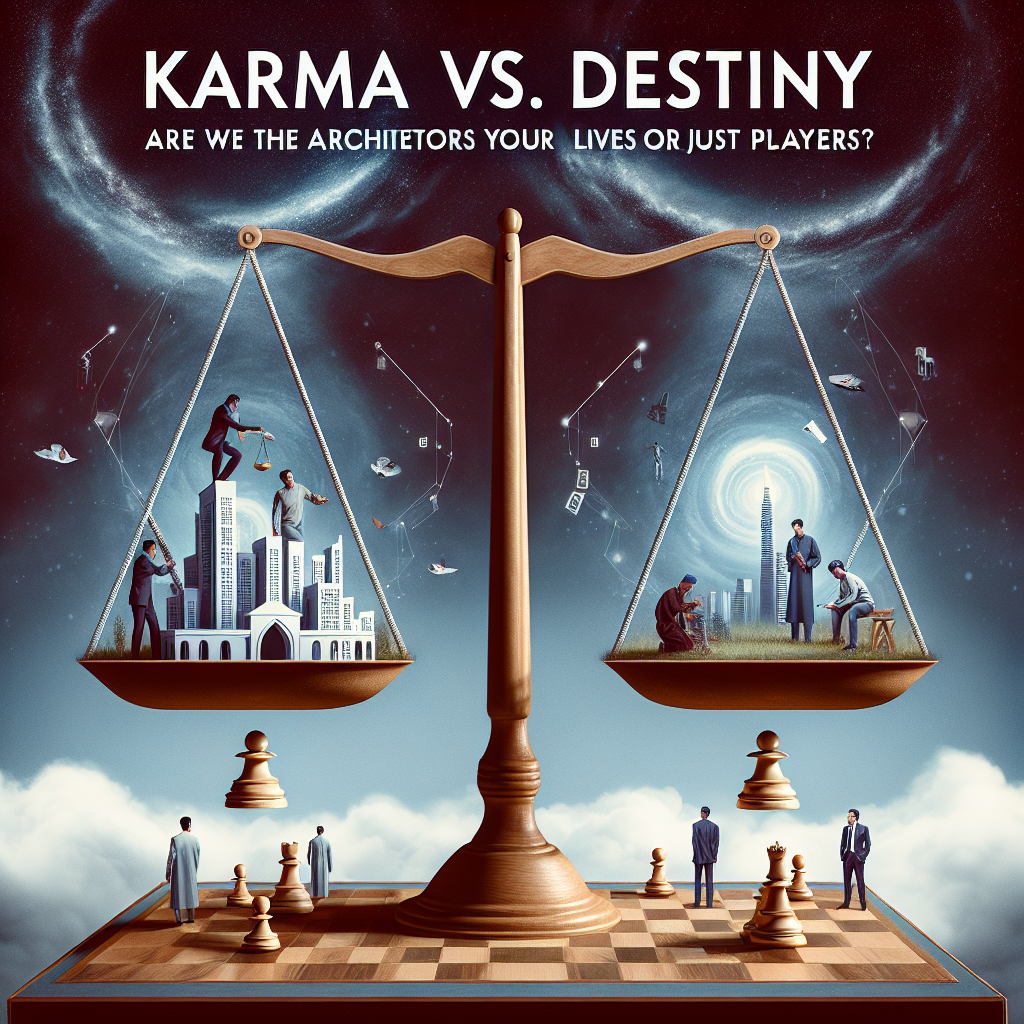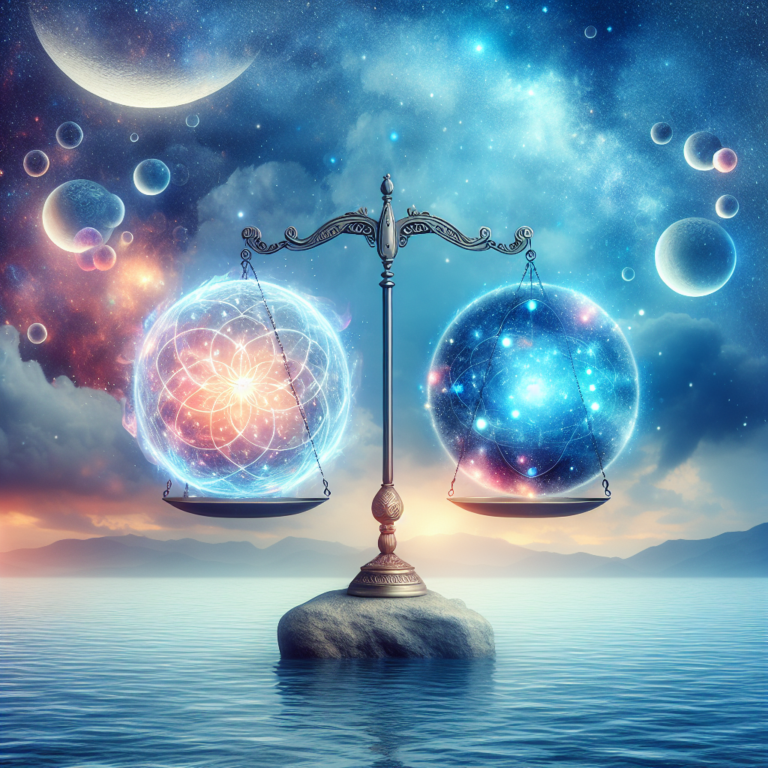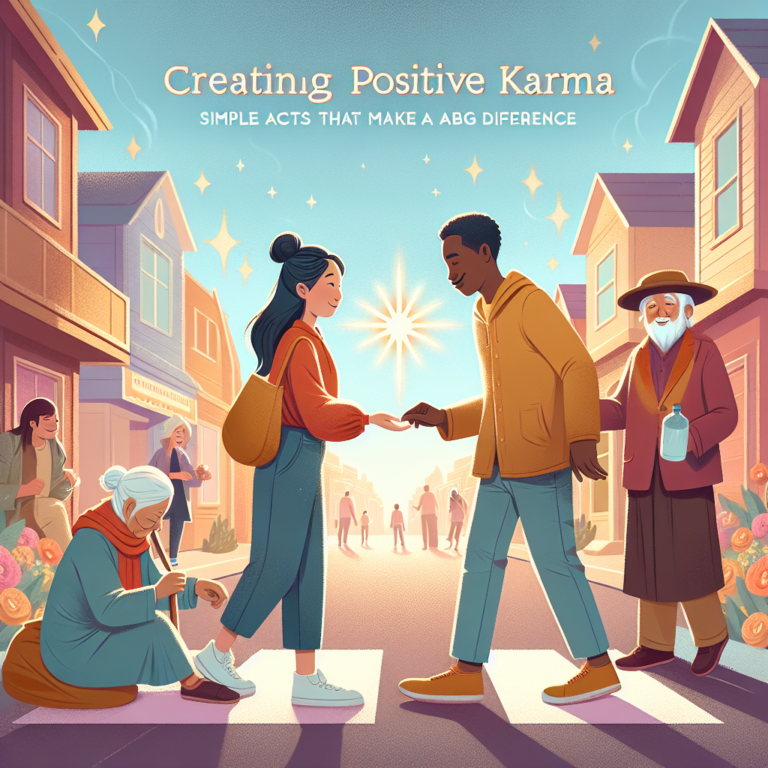Karma vs. Destiny: Are We the Architects of Our Lives or Just Players?
Throughout history, humankind has been fascinated by the concepts of karma and destiny, two powerful ideas that shape our understanding of life, choices, and consequence. At their core, these concepts ask fundamental questions about the nature of our existence: Are we in control of our lives, or are we merely players in a predetermined script? This article explores the intricate relationship between karma and destiny, pondering whether we are the architects of our own lives or if the universe has already penned our narratives.
Understanding Karma
Karma, originating from ancient Indian philosophies, especially Hinduism and Buddhism, refers to the principle of cause and effect. The idea posits that every action has a corresponding reaction—good actions lead to positive outcomes, while negative actions result in unfavorable consequences. Essentially, karma emphasizes personal responsibility and ethical living. The concept suggests that we have some measure of control over our fate by making wise choices in the present moment.
Karma is not merely about the consequence of actions but is also intertwined with intentions. A benevolent action performed with the right intention generates positive karmic energy, whereas selfish acts, even if they lead to favorable outcomes, can create negative karma. This deeper understanding reinforces the idea that our motivations matter significantly, suggesting that we are always in the process of shaping our destinies through our choices and intentions.
Exploring Destiny
Destiny, on the other hand, often conveys a sense of inevitability. It stems from the belief that certain events are predetermined and that certain outcomes are fated to happen regardless of human intervention. Many religious and philosophical systems—particularly those that involve a divine orchestrator—propagate the idea that a higher power or universal principles dictate the course of life. This belief raises the question: are we simply playing a role in a grand script written by an invisible hand?
The idea of destiny can offer comfort and hope; it suggests that there is a greater plan for our lives and that the struggles we face may carry purpose. However, it can also lead to resignation, where individuals might feel powerless in their situations, believing that no matter what choices they make, their paths are already set.
The Interplay of Karma and Destiny
The juxtaposition of karma and destiny reveals a complex interplay between agency and fate. While karma emphasizes personal responsibility and the influence of our actions on future outcomes, destiny hints at preordained paths. Critics of strict determinism argue that it can lead to nihilism or apathy; if everything is predetermined, why bother making an effort? Conversely, proponents of karma often challenge the notion of a fixed destiny, suggesting that we can alter our life paths through conscious decision-making.
This complex relationship becomes even more intricate when we consider concepts like synchronicity and serendipity. Moments where chance and choice converge often challenge our understanding of fate. Are these mere coincidences governed by the laws of chance, or are they the universe responding to our intentions and energies?
The Role of Free Will
The debate between karma and destiny inevitably leads to discussions about free will. Most philosophical frameworks recognize some degree of individual autonomy. Humans possess the ability to reflect, choose, and act upon their choices, which suggests that we have some input in shaping our destinies. This perspective aligns more closely with the principles of karma: the idea that our actions generate consequences that we must navigate in life.
However, the acknowledgment of external factors cannot be overlooked. Various social, environmental, and biological factors influence our situations and choices. For instance, a person may have the intention and the will to succeed but could face insurmountable obstacles due to socioeconomic constraints or systemic injustices. This reality complicates the simplistic dichotomy of choice versus fate, suggesting a continuum where both karma and destiny function collaboratively.
Can We Embrace Both?
Rather than viewing karma and destiny as opposing forces, many contemporary thinkers advocate for a more integrative approach. By recognizing that life is a tapestry woven from both our choices and external circumstances, we can adopt a more balanced and empowered perspective.
In practical terms, this means acknowledging the power of our actions (karma) while also recognizing that certain factors may be outside our control (destiny). For example, one might work diligently towards a specific career goal (karma), but various life events—such as economic downturns or personal crises—may alter that path (destiny).
Conclusion
The age-old question of whether we are architects of our lives or mere players is far more than a philosophical musing; it speaks to the core of human experience. Understanding the relationship between karma and destiny can empower us to take responsibility for our actions while remaining cognizant of the forces beyond our control.
In a world that can often feel chaotic and unpredictable, this balance can illuminate a path forward. By embracing both our roles in shaping our destinies and the serendipitous nature of life’s unfolding events, we can cultivate resilience, intention, and ultimately, a deeper sense of purpose.
FAQs
1. What is the difference between karma and destiny?
Karma refers to the cause-and-effect relationship between actions and their consequences, emphasizing personal accountability. Destiny, on the other hand, suggests a predetermined outcome, often influenced by a higher power or fate.
2. Can karma be changed or influenced?
Yes, karma can be influenced by our actions and intentions. Positive actions can build good karma and lead to favorable outcomes, whereas negative actions can create adverse karma.
3. Does believing in karma mean that everything in life is in our control?
Not exactly. While we can influence our karma through our choices, external factors—such as societal conditions and random events—also play significant roles in shaping our destinies.
4. Is it possible to have both karma and destiny?
Yes. The concepts can coexist, with karma representing the choices we make and their impacts, while destiny acknowledges that some factors may be beyond our control.
5. How can understanding karma and destiny benefit us in everyday life?
Understanding these concepts can cultivate a greater sense of responsibility for our actions and help us navigate life’s unpredictability with greater resilience and perspective. Recognizing the interplay between our choices and circumstances empowers personal growth and self-awareness.
It seems like your message might have been cut off. Could you please provide more context or specify what kind of prompt you’re looking for? Whether it’s for writing, creative projects, or something else, I’m here to help!, #Karma #Destiny #Architects #Lives #Players, #Karma #Destiny #Architects #Lives #Players, 1736308212, karma-vs-destiny-are-we-the-architects-of-our-lives-or-just-players





